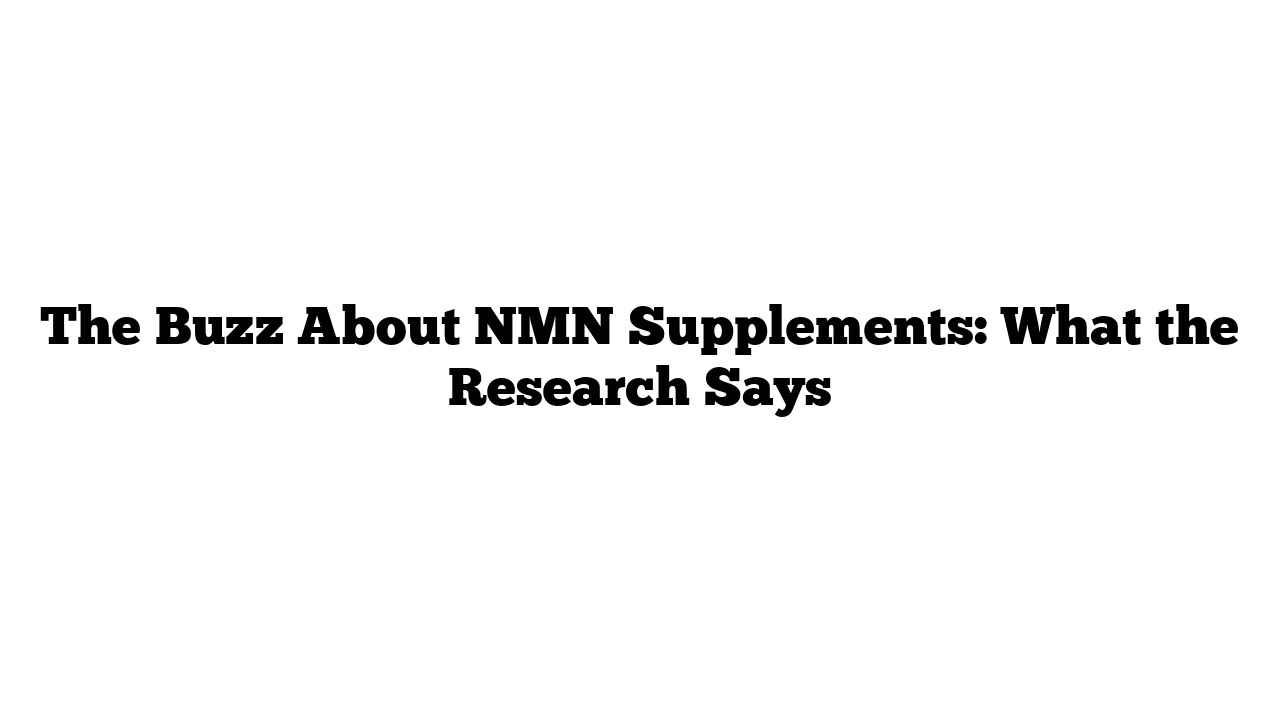As a healthcare professional, I often find myself exploring new supplements and their potential benefits. One supplement that has garnered significant attention in recent years is Nicotinamide Mononucleotide (NMN). Since the excitement began with Harvard professor David Sinclair discussing it on The Joe Rogan Experience, many have turned their curiosity toward NMN and its alleged health benefits. So, what does the research say about NMN? Let’s break it down.
Understanding NMN and Its Potential
Nicotinamide Mononucleotide (NMN) is a compound that plays a critical role in the production of NAD+ (Nicotinamide Adenine Dinucleotide), a coenzyme essential for energy metabolism and overall cellular function. The hope is that by supplementing with NMN, we can enhance our NAD+ levels, potentially improving energy, muscle performance, and metabolic health. However, it’s essential to look closely at the evidence.
Key Findings from Human Studies
After reviewing 18 human studies on NMN supplements, four crucial takeaways emerged:
- Safety First:
All studies conducted so far indicate that NMN supplements appear to be safe for short-term use. None of the studies reported significant safety concerns, which is a promising sign for those considering supplementation. - Impact on NAD+ Levels:
The primary goal of NMN supplementation is to boost NAD+ levels. Research consistently shows that NMN effectively raises blood NAD+ levels. However, there’s a caveat: only one study measured muscle NAD+ levels, and it found no significant change. This raises questions about whether NMN truly enhances muscle performance. - Mixed Results on Muscle Performance:
Among the various measures of fitness and muscle performance evaluated, 12 out of 16 showed no improvement with NMN supplementation. While there was one controversial study suggesting that participants could walk significantly further after taking NMN, this finding was met with skepticism due to unusual data. In contrast, other studies suggested that regular exercise might naturally maintain our muscle NAD+ levels without the need for supplements. - Metabolic Health Outcomes:
When it comes to metabolic health markers such as cholesterol, glucose levels, and insulin sensitivity, results were similarly mixed. Out of 28 measures assessed across the studies, 23 showed no effect from NMN supplements. Notably, one study even indicated a worsening of insulin sensitivity in the placebo group, complicating the interpretation of the data.
The Importance of Clinical Trials
With customer reviews often touting the benefits of NMN supplements, one might wonder why we need clinical trials. This is where the placebo effect comes into play. The placebo effect is a psychological phenomenon where individuals experience improvements in their condition simply because they believe they are receiving treatment, not necessarily due to the treatment itself.
For instance, a study on glucosamine and chondroitin for arthritis found that both the treatment and placebo groups reported similar levels of pain relief, underscoring the need for rigorous clinical trials to establish true effectiveness.
A Cautious Approach to NMN
Despite the initial excitement surrounding NMN supplements, the current body of research suggests a more cautious approach is warranted. While short-term use appears safe, the long-term effects remain unclear. High doses of vitamin B3, a component of NMN, have been linked to increased mortality rates in some studies, raising concerns about potential health risks.
For those considering NMN supplementation, it’s crucial to consult with a healthcare provider. Maintaining a healthy lifestyle with a balanced diet and regular exercise may be a more effective strategy for supporting NAD+ levels and overall health.
A Balanced Perspective
In light of the current findings, I continue to take NMN as part of my daily regimen, but I do so with caution and awareness of the existing research. It’s essential to remember that dietary supplements should complement a healthy lifestyle, not replace it.
As I always say, “Prevention is better than cure.” Focus on exercise and balanced nutrition, and consult trusted sources for reliable health information. For more insights, feel free to visit medicaltimes.io.
